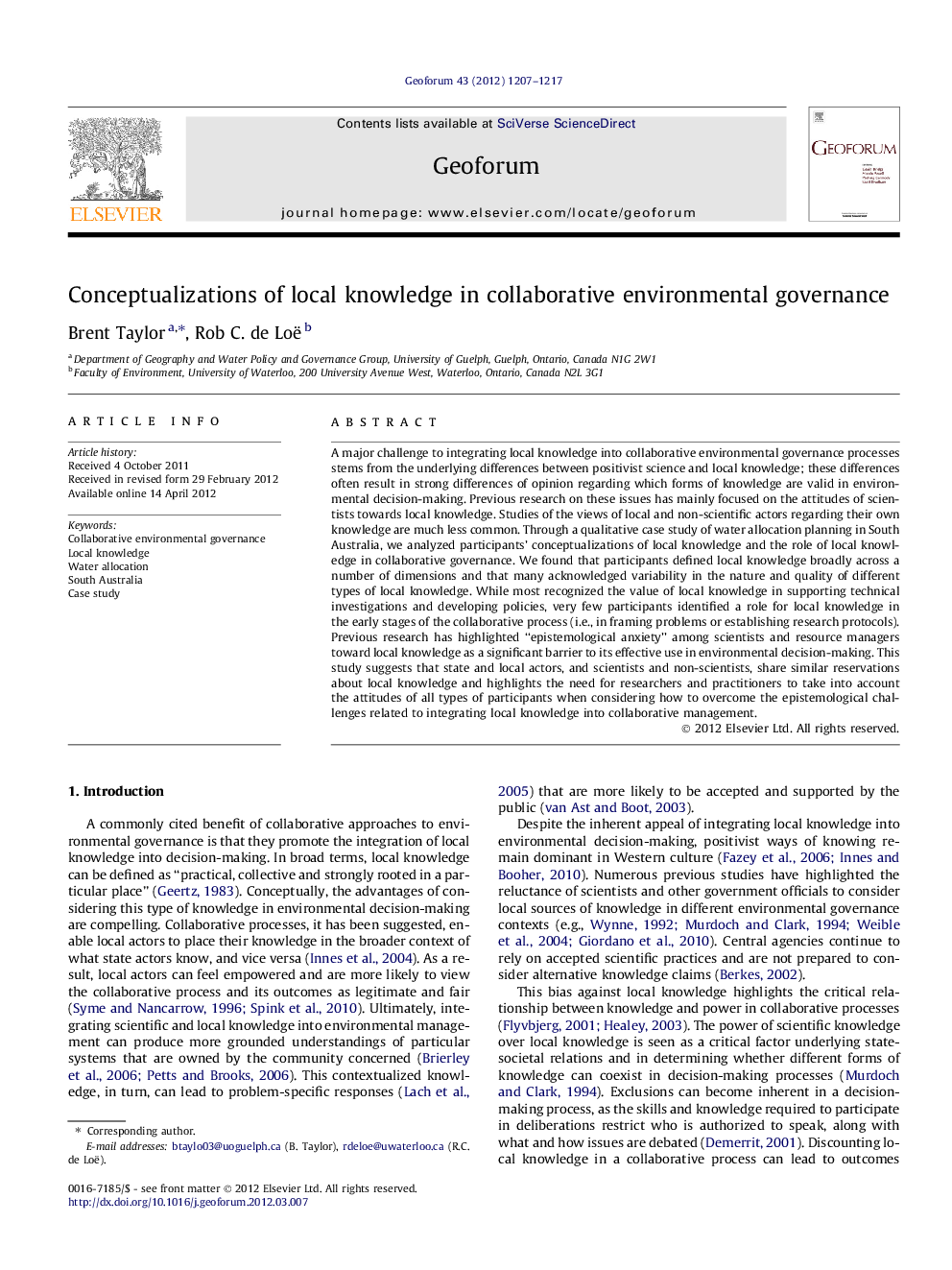| Article ID | Journal | Published Year | Pages | File Type |
|---|---|---|---|---|
| 5074318 | Geoforum | 2012 | 11 Pages |
A major challenge to integrating local knowledge into collaborative environmental governance processes stems from the underlying differences between positivist science and local knowledge; these differences often result in strong differences of opinion regarding which forms of knowledge are valid in environmental decision-making. Previous research on these issues has mainly focused on the attitudes of scientists towards local knowledge. Studies of the views of local and non-scientific actors regarding their own knowledge are much less common. Through a qualitative case study of water allocation planning in South Australia, we analyzed participants' conceptualizations of local knowledge and the role of local knowledge in collaborative governance. We found that participants defined local knowledge broadly across a number of dimensions and that many acknowledged variability in the nature and quality of different types of local knowledge. While most recognized the value of local knowledge in supporting technical investigations and developing policies, very few participants identified a role for local knowledge in the early stages of the collaborative process (i.e., in framing problems or establishing research protocols). Previous research has highlighted “epistemological anxiety” among scientists and resource managers toward local knowledge as a significant barrier to its effective use in environmental decision-making. This study suggests that state and local actors, and scientists and non-scientists, share similar reservations about local knowledge and highlights the need for researchers and practitioners to take into account the attitudes of all types of participants when considering how to overcome the epistemological challenges related to integrating local knowledge into collaborative management.
⺠Epistemological anxiety towards local knowledge constrains its use in collaborative processes. ⺠Analyzed participants' conceptualizations of local knowledge and role in collaborative processes. ⺠Participants conceptualized local knowledge broadly across a number of dimensions. ⺠State and local participants expressed reservations about the quality of local knowledge. ⺠Participants identified subsidiary role for local knowledge in collaborative processes.
